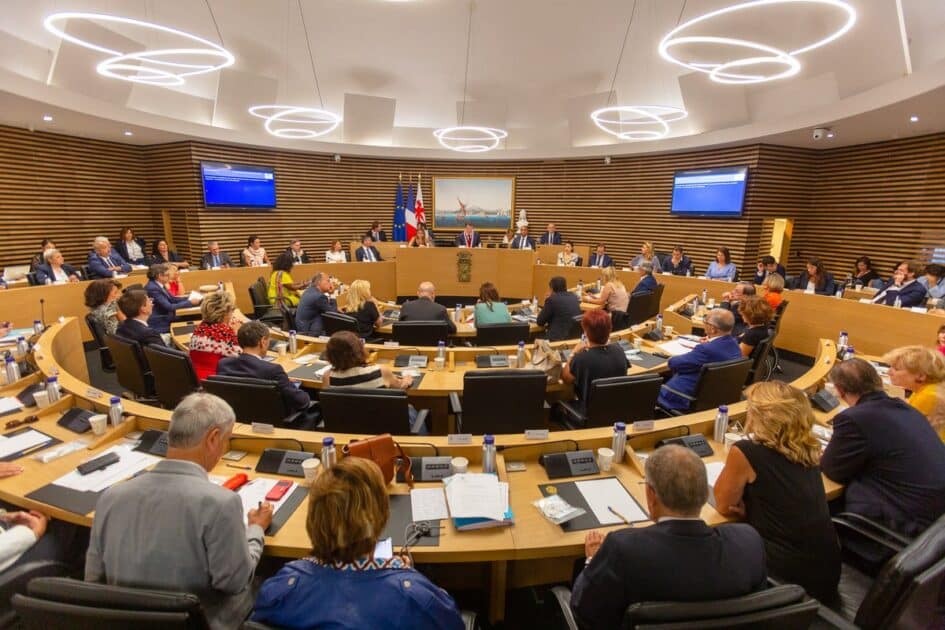
During the City Council meeting this Friday, October 18, elected officials from both the majority and the opposition had heated discussions. Issues regarding housing, education, and social diversity were debated.
The central debate of the council focused on the city’s budgetary directions for 2025. The reduction of public debt to 5% of GDP, a goal set by the French State, requires efforts from local communities, including Nice. However, Christian Estrosi pledged not to make “any sacrifice at the expense of our citizens.” With a clear and confident tone, the mayor stated his refusal to allow any deterioration of public services. He reiterated his ambition to ensure the safety of the people of Nice by announcing the recruitment of 50 municipal police officers. “Living in safety is the foremost right of the people of Nice,” he declared.
As part of his commitment to education, the mayor also discussed the Territorial Educational Project and the Wednesday Plan, with a clear goal for the 2025-2026 school year: to support families in their school-related expenses. Access to quality education remains a priority, and according to him, the school catering service must maintain its standards.
Regarding the housing issue, tensions arose over social housing and secondary residences. Fabrice Decoupigny (ecologist) pointed out a penalty of 11 million euros imposed on the city for insufficient social housing and proposed an increase in property tax on secondary residences. According to him, this measure should not affect the people of Nice since 75% of the owners of these residences live outside the region. On the other side, Valérie Delpech (Retrouver Nice) criticized the city’s indebtedness.
Social Diversity Report: Tense and Irascible Discussions
The city council got heated during the discussion on signing a social diversity contract with the State. This contract aims to reinforce the application of the SRU (Solidarity and Urban Renewal) law, which requires municipalities to have a minimum number of social housing units.
On this topic, Philippe Vardon (Retrouver Nice) criticized what he described as a “settlement contract,” highlighting that the number of social housing units has increased by 31%, while the number of primary residences has only grown by 5%. According to him, this dangerous policy is responsible for a “disruption for the original inhabitants,” who, according to his words, often end up leaving the affected areas. The municipal councilor then described this law as a “communist law at the heart of France’s failure.” He further linked this evolution to a rise in insecurity.
These remarks sparked a strong reaction. Ms. Chesnel-Le Roux, an ecologist municipal councilor, jumped up and labeled Mr. Vardon’s statements as “demagogic” and “racist.” The mayor, presiding over the ceremony, concluded with a long tirade against Philippe Vardon, citing Abdellatif Kechiche, a filmmaker born in the Moulins district, “who has achieved far more in life than you.” Despite the abstention of the Retrouver Nice group, the text was eventually adopted.
The verbal jousting between the majority elected officials and the municipal councilors of the Retrouver Nice group did not stop there. During Abdallah Khemis’s introduction of the Equality Bus initiative, aimed at promoting equal opportunities in neighborhoods, Thierry Venem (Retrouver Nice) retorted: “The feedback from the residents is clear: they do not want yet another communication initiative, they want a strong and concrete presence, to rid their neighborhoods of criminals.”
Rémi Sauvat